Five key risk factors for endometrial cancer that you should know about
28th April 2023
Our researchers in Australia, led by Curestarting scientist Dr Tracy O’Mara, have made an important breakthrough in understanding risk factors for endometrial cancer. Their findings could go on to help people at high risk from developing endometrial cancer, and could shed light on new ways to treat patients with the disease.
Endometrial cancer happens when cells in the lining of the womb (the endometrium) start to grow out of control and spread. It is the most common type of womb cancer and is the 4th most common cancer in women in the UK.
Most cases are spotted because of irregular bleeding or bleeding after menopause. If caught early, endometrial cancer can often be treated effectively. However, the number of cases has been increasing in recent years in many countries.
This means that it’s more important than ever that we understand what factors make someone more at risk of endometrial cancer – it could help us to prevent many cases from ever happening.
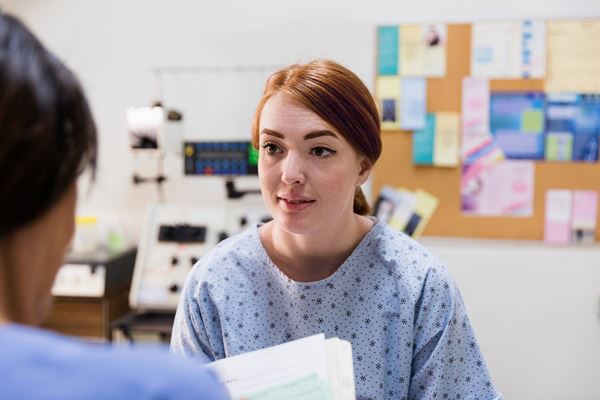
Dr Tracy O’Mara and her team have been investigating which factors are more likely to be shared among patients with endometrial cancer.
Their study revealed five key factors that independently affect a person’s risk of endometrial cancer:
- Waist circumference
- Age at natural menopause
- Age at first period
- Levels of testosterone
- Levels of sex-hormone binding globulin, a protein that attaches to sex hormones in the blood
In the second part of their study, Dr O’Mara combined these findings with genetic information. They found a specific genetic sequence, which is the order of genes in a person’s DNA, that was linked to an increased risk of developing endometrial cancer.
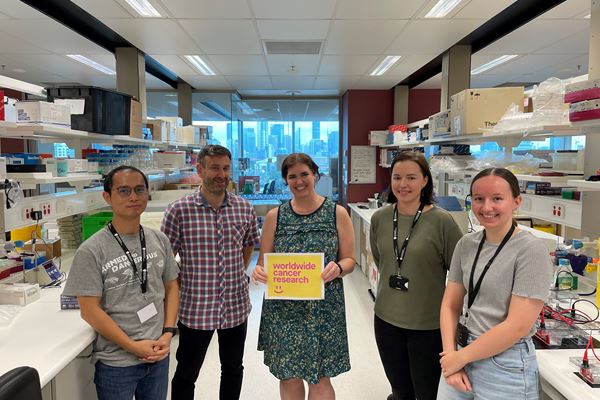
Importantly, this sequence was also linked with testosterone levels, one of the five key risk factors that the team identified.
Dr O’Mara says this could mean it is possible to prevent or treat endometrial cancer by targeting testosterone with hormone therapy.
This new knowledge could also be used to spot people at high risk.
Dr O’Mara hopes this could be possible within the next five years.

You can help brilliant cancer researchers, like Dr O'Mara, to make big breakthroughs by supporting discovery cancer research. Become a Curestarter today.
Dr O'Mara shared this message for our generous supporters:
“This important breakthrough could lead to early detection, personalized interventions, and ultimately, improved outcomes for patients with endometrial cancer.
"This is crucial given the rising incidence and mortality rates of endometrial cancer.
"We cannot thank you enough for the trust you have placed in us to carry out this important work. Your contributions are making a real difference in the fight against cancer, and we are honoured to have your support.”
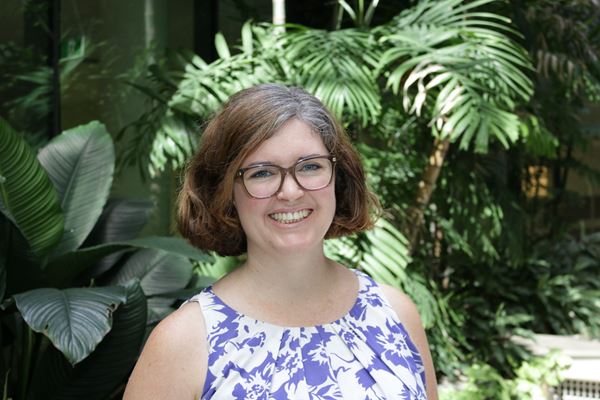
Dr Tracy O'Mara's project is jointly funded by Worldwide Cancer Research and Cancer Australia.
By working together with other cancer research funders, we can help to advance research quickly and support the best ideas.
This will enable more cutting-edge ideas with potential for impact to be explored.
Read more
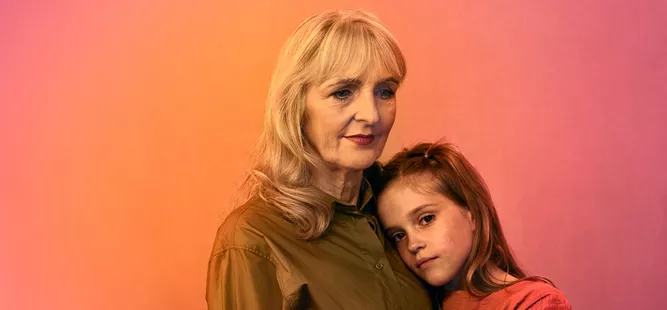
Why is cancer so hard to cure?
This is a million, if not a billion, dollar question. With so much money spent on trying to find cures for cancer, why is there not a cure yet? Let’s explore the reasons why cancer is especially hard to cure, but also the reasons to be optimistic.
15 September 2022
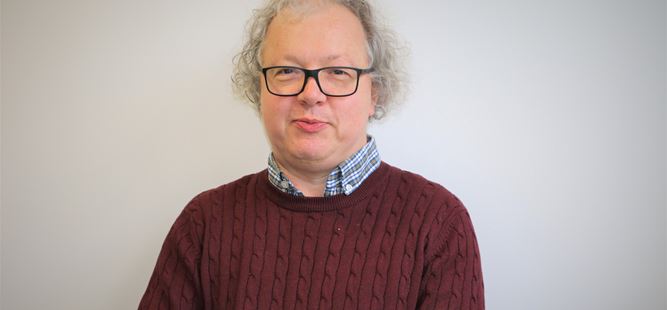
Our impact: Helping to diagnose rare genetic diseases
Research we funded helped Professor Kevin Hiom discover a new gene which was involved in the development of a rare genetic disease called Fanconi anemia.
11 November 2020

30 potential new cures started in 2023 thanks to you!
Thanks to the phenomenal support of our Curestarters, we have been able to say 'Yes!' to 30 new pioneering ideas from outstanding cancer researchers. That’s an incredible total of £6.2 million of new research that we are funding together, that could lead to more lifesaving ways to prevent, diagnose and treat cancer.
02 February 2023
